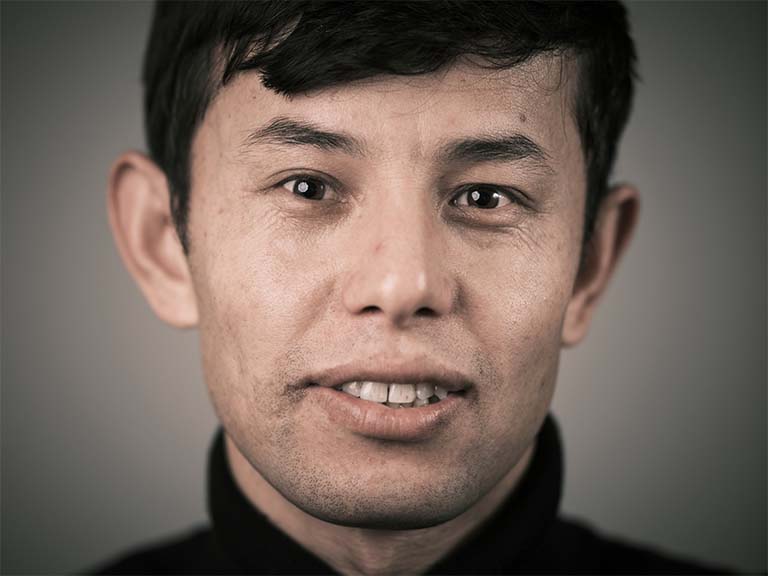Educational science
“Those who feel comfortable and belong learn better”
Motivation and emotion are two key success factors in the learning process, as educational scientists Tina Hascher and Julia Mori explain in the interview. They have organized an international conference on this topic in Bern.

Tina Hascher, learning can be fun, but it can also cause anxiety and frustration. How can a better understanding of motivation and emotion help to overcome such challenges?
Tina Hascher: There are many ways to do this, because motivation and emotions play a decisive role in every learning process. For example, if I as a teacher notice that young people are not interested in a topic, I can try to motivate them by fulfilling their basic psychological needs.
There are three basic needs: to feel competent, to be socially integrated, and to experience autonomy. When I allow learners to work together so that they feel a sense of belonging or define achievable goals with them so that they feel competent, I build up motivational potential. One thing is clear: everyone has to find motivation within themselves - but as a teacher, I can create the best possible framework conditions if I always think about how I can stimulate motivation when designing my lessons. Because emotion and motivation are closely linked, it is also important to incorporate emotions.
For some secondary school students, math lessons are associated with frustration and fear. I have to pick up on these previous experiences and talk to them about the fact that everyone is afraid or frustrated at times. As a teacher, I can encourage them not to give up at the first failure and to be happy about successes. And I can increase the chance of success by adapting the design of tasks and setting realistic goals.
“What would happen if we broke up the class structures and thought about school in a completely different way?”
Tina Hascher
About the person

Tina Hascher
has been a full professor of school and teaching research at the Institute of Educational Science at the University of Bern since 2013. Her research focuses on emotions and motivation in schools and lessons, well-being and health promotion in schools, and teacher training.
Contact
Prof. Dr. Tina Hascher
Institute of Educational Science, Department of Research in School and Instruction, University of Bern
E-mail: tina.hascher@unibe.ch
What are the most valuable resources that can be used in learning?
Julia Mori: The most important factor is having positive relationships - both between the teacher and the children and among the pupils. Positive relationships are a basis for successful learning and must be exemplified and encouraged by the teacher.
Emotional regulation is another key resource that can be trained at school. There are techniques for this, such as breathing exercises or a regular ritual in which learners become aware of how they feel and talk about it. Motivation is also boosted when young people experience themselves as self-effective. This happens, for example, when they define learning goals with the teacher and then receive feedback on how well they have achieved them.
Intrinsic motivation is an incredible source of strength. And this can be encouraged by showing children what they learn for life at school. Autonomy also has a very motivating effect: When I, as a pupil, am given the freedom to work independently, for example with open tasks or in projects.
“Positive relationships are a basis for successful learning and must be exemplified and encouraged by the teacher.”
Julia Mori
About the person

Julia Mori
is an Advanced Postdoc in the Department of Research in School and Instruction at the Institute of Educational Science at the University of Bern. Her research interests include well-being, resilience and health promotion in schools, motivation and learning, school alienation and intervention research.
Contact
Dr. phil. Julia Mori
Institute of Educational Science, Department of Research in School and Instruction, University of Bern
E-mail: julia.mori@unibe.ch
The demands on teachers are increasing. What approaches does research offer to promote their resilience?
Hascher: Research clearly shows that the most important factor for the well-being of teachers is that they see themselves as a cooperative structure together with others. Not “me and my class”, but “we and my class” or “we and our school”. The opportunities for this would be available, because in addition to the class teacher, speech therapists, special education teachers, co-teachers and classroom assistants also come and go in Swiss classrooms.
However, better structures and time frames are needed. This feeling of shared responsibility and social support is a source of strength and well-being for many teachers. That's why we don't just talk about the resilient teacher, but about the resilient school. It is not enough to empower individuals, we need to think about and promote resilience systemically.
What does it take for such research results to find their way into practice?
Hascher: A central aspect is building bridges. After all, our research is not primarily published for teachers. It is ideal when researchers work together with lecturers at universities of teacher education and teachers to shape training and further education. For example, our knowledge on how to learn French in a motivated way can be incorporated into a practice-oriented course for teachers. We researchers are also encouraged to place practical contributions in school publications and work with schools in a targeted manner.
Mori: One example of a successful translation of research results and good cooperation with schools is WESIR. This is a study on well-being in Swiss schools, which is funded by the Swiss National Science Foundation and which we are conducting at the University of Bern. We provide schools with scientifically proven interventions to improve well-being and support the introduction of the program.
We involve the teachers in the implementation process as they have already built up a relationship with the children. It is also important to keep reminding the young people of the goal: If they feel comfortable at school, if they feel safe and like they belong, they can learn better and perform better.
Which topics should be researched more?
Mori: Certainly on educational technologies and digitalization. I find the following questions particularly important: What impact do these technologies have on children's social and emotional development? How are they best used? How can we ensure that everyone has access, including girls who are sometimes less confident with technology or children who don't have a laptop at home? We also need more interdisciplinary research, in this example from researchers in robotics and educational science.
Hascher: And I would like to know more about how the transfer of emotional and social skills from one learning environment to the next can succeed. Today, primary school children, for example, learn to regulate their emotions in order to work independently. But when they move on to secondary school, it is often said that they can't do this enough. Somewhere in the transition between primary and secondary school, the knowledge is lost or cannot be transferred.
I'm also interested in what would happen if we broke up class structures and thought about school in a completely different way? What happens if pupils learn much more with and from each other, including mixed age groups and across classes? This is already being implemented in various schools in Bern. But there are not yet enough studies on this.
Media release of the University of Bern, 20.8.2024
Conference on Motivation and Emotion in Education
Subscribe to the uniAKTUELL newsletter

Discover stories about the research at the University of Bern and the people behind it.


